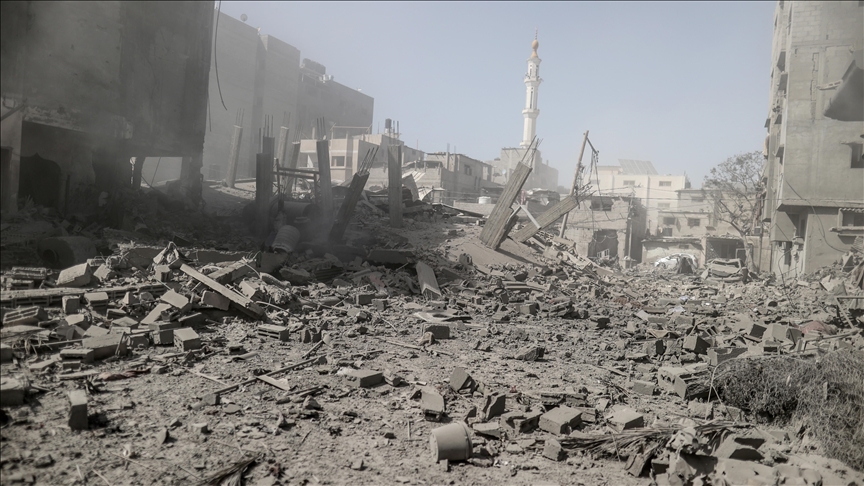Cyprus setback
The Dutch presidency has said it would not attend the meeting in response to Ankara’s insistence that the KKTC should be represented as the "Turkish Cypriot State," as described by the 57-nation Organization of the Islamic Conference (OIC) and invited other members not to attend in a circular to EU capitals.
"The decision of the EU presidency not to attend and its call in this regard to other countries … resulted in the cancellation of this non-official foreign ministers’ meeting," the Turkish Foreign Ministry said in a statement.
The cancellation of the meeting, scheduled for Oct. 4-5 was disappointing for Ankara, which was enthusiastic as this would give the opportunity to prove that it could be a "real bridge" between the EU and the Muslim world. But more worrying than that, said analysts, it revealed that Ankara and Brussels could find themselves set to work on a "rocky path."
The diplomatic spat came as the EU Commission prepares to present a report on Oct. 6 on whether Turkey has met tough EU criteria for opening accession talks with the bloc.
"This was a minor issue that resulted in such an outcome. Some may think ‘just imagine what could happen in the future when real problems concerning the substance of the Cyprus problem arises’," Sami Kohen, foreign policy columnist for Milliyet daily said.
Overall, the issue was about a "name plate," he said.
Two-week-long ambiguity about the representation title of the KKTC at the meeting has turned into a crisis this week, after Greek Cypriots supported by Greeks started lobbying in Brussels. They opposed Turkish Cypriots being represented as the "Turkish Cypriot State," instead of the "Muslim Community of Cyprus," as they used to be represented at OIC meetings in the past, saying it was against their vital national interests.
The Dutch presidency offered various formulas to find a solution; one of which was to have EU and OIC members and OIC observer countries as three separate delegations under three name plates. Turkey did not accept this last formula and then the Dutch presidency decided not to attend the meeting and proposed other members did the same.
"Europeans felt Turkey is not really ready for a political culture of compromise," an EU diplomat told the Turkish Daily News in comments after Ankara’s decision to cancel the meeting. He said that every EU country had national interests of their own, however, becoming a member meant agreeing on dealing with different nations and their national interests.
"If Turkey continues its uncompromising attitude and blows its own EU path with symbolic issues, it will always be a rough ride on a rocky road for Turkey," the same diplomat said. Expressing disappointment as a diplomat, the official said, "On a day like this, it is very difficult to be or to remain as a friend of Turkey."
Just days before the commission’s report, Ankara’s position could spoil the postive atmosphere pervading ties and irk the EU that they could be negotiating with an "intransigent" candidate unwilling to compromise on certain issues like Cyprus.
But there was enough reason to disgruntle Ankara as well. The issue would not only have an impact on the European public, but would also lead the Turkish public to confirm a widely held belief that "whatever we do, we will not be peaceful as long as Greek Cypriots are in the EU," Kohen said.
The forum which began dialogue between civilizations after the Sept. 11 attacks in the United States as a response to the thesis of "a clash of civilizations" did not help improve dialogue between Turkey and the EU, at least this time.
——————————————————————————–


